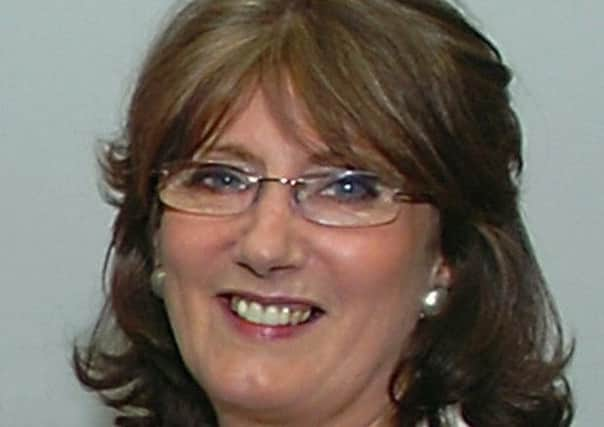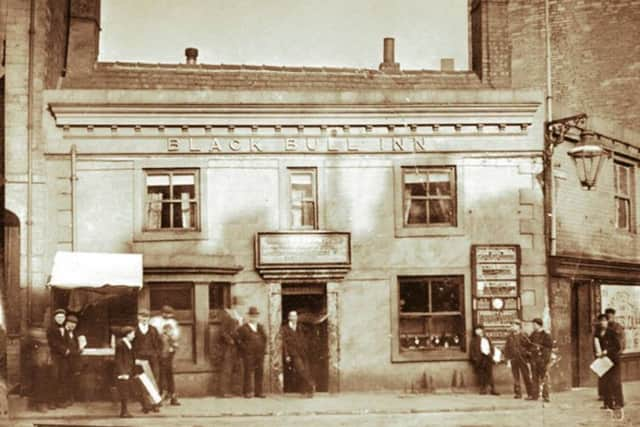The Nostalgia column with Margaret Watson


There were around 200 of them dotted throughout the borough, and in the town centre alone there were 30.
Three were next door to each other – the Kings Arms Hotel, (where John Colliers used to be), the Man and Saddle (where Woolworth’s was), and the Black Bull, which still stands today.
Advertisement
Hide AdAdvertisement
Hide AdThe growing number of pubs in the borough was always a great concern to both the police and licensing magistrates who were forever looking at ways of reducing the number.


Many were eventually closed down and the breweries were paid compensation, but drunkenness continued in many of those remaining.
Landlords were brought before the magistrates for a wide variety of offences including permitting drunkenness, serving after hours, allowing betting and harbouring prostitutes.
The laws were complicated and it was often impossible for landlords not to break them, especially the one relating to prostitutes.
Advertisement
Hide AdAdvertisement
Hide AdBy law prostitutes, of whom there were many in Dewsbury at that time, were only allowed to remain on pub premises long enough to have one drink.
Landlords were expected to recognise every prostitute who lived in the town and ignorance was never accepted as a defence by magistrates.
Surprisingly, prostitutes who did outstay their welcome, were never prosecuted because the law clearly stated they could stay long enough to partake of refreshments, usually one drink.
In 1871, Dewsbury publicans, fed up with the stringent licensing laws, sent a petition to Westminster which contained nearly 12,000 signatures and was 77 yards in length. It didn’t change anything...
Advertisement
Hide AdAdvertisement
Hide AdTemperance church leaders constantly complained of the growing number of people who were turning away from the church on Sunday to visit licensed premises.
The only way to get people back into church they said was to close pubs on Sundays, and with this in mind they sent a petition to the licensing justices urging them to close pubs on Sundays.
They carried out a census with over 200 men volunteering to stand outside every church and public house in Dewsbury to count those who went inside.
They soon discovered what they had feared that far more people were spending the Sabbath in licensed premises than in church.
Advertisement
Hide AdAdvertisement
Hide AdThe number of men going into pubs was 3,717 compared with 1,559 going to church, and the number of women going into pubs was 359 compared with 1,994 going to church.
But the cries of the Temperance Movement, which was a mighty force at that time, went unheeded and beers and spirits continued to flow in pubs all around Dewsbury.
It seemed the working man would continue to drown his sorrows for many years to come in the cosy comfort of the town’s many and varied licensed premises.
Most pubs in Dewsbury over the years were run reasonably well, but there were some which had a bad reputation and the Black Bull was one of them.
Advertisement
Hide AdAdvertisement
Hide AdAll that is now in the past and this 200-year-old building, which closed down some years ago, is currently undergoing a complete refurbishment and the ghosts of the past will soon be laid to rest.
The pub, built of local stone, was originally only two storeys, but in the 1920s it was rebuilt and a third storey added.
The picture above shows it before the alterations.
It was re-built in the art deco style and the gargoyles and stonework at the front of the building were all intended to make it look older to fit in with the Kings Arms and Man and Saddle next door.
If these two pubs had been listed as the Black Bull was later to be, they may have escaped demolition and being replaced by shops.
Advertisement
Hide AdAdvertisement
Hide AdBut the Black Bull kept up with the times, and the fact that it modernised itself inside and out, probably helped it survive.
Although it looks a sorry sight at present, it will soon be transformed yet again.
It seems this pub is destined to just go on and on.
It does have a varied and colourful history and once was home to many respectable groups and organisations in Dewsbury.
Local auctioneers held property sales there, and various lodges, trade unions and charitable groups also met there.
Advertisement
Hide AdAdvertisement
Hide AdAnd it is claimed that Dewsbury Rugby Union Football Club met there in 1898 to finally decide to follow their neighbours across the north and join the Northern Union.
But, I have to be careful here, because there are others who may claim that this meeting was held in the Royal Hotel, now converted into a bank.
I leave that to sporting historians to work out.
I would like to thank local pub historian Rod Kaye and Stuart Hartley for assisting me with this article.